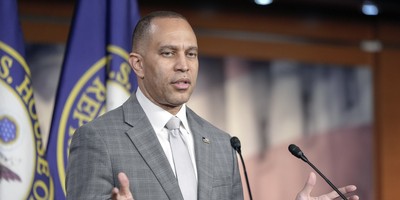How transgender-identifying individuals are housed in federal prisons is not a theoretical question. It directly affects the safety, privacy, and dignity of inmates, particularly women. Under the Biden administration, federal agencies were instructed to disregard biological sex and could instead classify inmates based solely on how they self-identified. That policy treated personal identity claims as if they were biological facts and authorized prison officials to treat male inmates who identified as women the same as biological females in housing assignments and private spaces.
This shift did not occur in isolation. It reflected a broader federal posture that prioritized gender ideology over operational safety and common sense. Prison officials were expected to override objective assessments in favor of self-identification, even when that meant placing biological males in private women’s facilities. This put the dignity, safety, and privacy of female inmates at risk on top of ignoring basic truth.
In January, in one of President Trump’s first acts, he restored clarity and truth and away from gender ideology. Through Executive Order 14168, his administration reaffirmed that biological sex was the standard for housing inmates. The order also prohibited the use of federal taxpayer dollars to fund sex-reassignment surgeries and hormone procedures for inmates.
Shortly after Executive Order 14168 was issued, multiple lawsuits were filed in federal court seeking to block its enforcement. The plaintiffs in those cases argued that housing transgender-identifying male inmates in male facilities and denying access to taxpayer-funded sex-reassignment procedures, violated the Eighth Amendment’s prohibition on cruel and unusual punishment. In response, a federal district court issued a preliminary injunction, halting the Trump administration’s policy before it could be fully implemented.
That is when Idaho stepped forward. Together with Indiana, we led a 26-state coalition urging the United States Court of Appeals for the D.C. Circuit to reverse the lower court’s rulings. We filed an amicus brief defending the executive order and the authority of the federal government to establish policies that preserve safety, security, and institutional order within its correctional system.
Recommended
Our position is straightforward and common sense. The federal government is responsible for protecting the welfare of all prisoners in its custody. The Trump administration has rightly determined that placing biological males in female spaces creates unacceptable and dangerous risks. Those risks include increased chances of violence and sexual assault, the violation of female inmates’ rights to privacy and dignity, and the coerced use of language and conduct that contradicts biological reality and truth.
Contrary to the claims made in these lawsuits, the Constitution does not require the government to disregard biological sex. The Eighth Amendment does not prohibit policies that seek to protect the safety of inmates based on evidence and professional judgment. In fact, constitutional principles require that these policies be made by accountable decision-makers, not imposed through litigation.
This case is part of a broader legal and cultural conflict. If federal policy treats gender identity as a substitute for biological sex, that approach will not remain limited to the prison system. It will affect how schools assign housing, how athletic programs determine eligibility, how shelters are operated, and how medical professionals are required to provide care. The consequences will be felt most by women and girls, who will be forced to bear the cost of policies built on fiction rather than fact.
Idaho has led on this issue consistently. We were the first state to protect the integrity of women’s sports. We enacted laws to protect minors from irreversible gender procedures. And now we are leading again by defending a federal policy that affirms biological reality, respects constitutional boundaries, and places public safety above political ideology.
Our coalition's brief makes clear that the federal courts must allow the Executive Branch to exercise its lawful authority to run the prison system based on the realities faced by those who work in it. Policies grounded in biological truth are not discriminatory. They are essential to fairness, order, and the protection of individual rights.
Idaho will not retreat from this responsibility. We will stand for the truth, for the Constitution, and for the women whose dignity and safety depend on it.
Raúl Labrador is the 33rd Attorney General for the state of Idaho.

























Join the conversation as a VIP Member